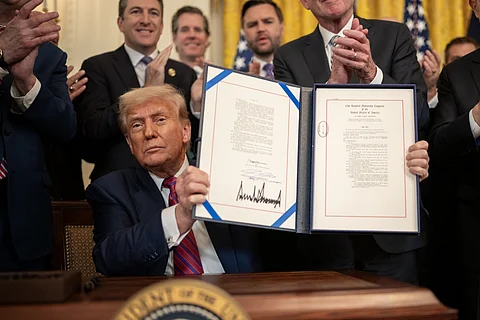

On Friday, President Donald Trump signed the GENIUS Act into law, marking a significant step toward regulating stablecoins, privately issued digital currencies pegged to the dollar.
The legislation establishes guidelines for companies issuing stablecoins, requiring compliance with anti-money laundering laws and monitoring for suspicious activities.
Investors responded enthusiastically, driving bitcoin, ether, and ripple to record highs, with bitcoin surging nearly 30% this year, outperforming gold and the Nasdaq.
Critics argue the GENIUS Act’s regulations are insufficient, potentially exposing consumers to risks.
Corey Frayer of the Consumer Federation of America noted:
The reason you would never recommend grandmother use a stablecoin is she would have to give away a dollar that’s protected by the federal government… in exchange for a stablecoin that doesn’t have any of those things.
Consumer Reports also opposed the law, warning that stablecoins’ integration into mainstream finance could lead to insolvencies and necessitate federal bailouts.
The GENIUS Act enables firms to use stablecoins for back-end operations, such as reducing merchant fees or simplifying cross-border payments.
Major U.S. banks and Zelle are reportedly exploring a joint stablecoin, highlighting industry interest.
However, controversy surrounds the Trump family’s ties to World Liberty Financial, a stablecoin issuer launched in 2024, which has earned the Trump Organization $500 million, raising concerns about potential conflicts of interest.